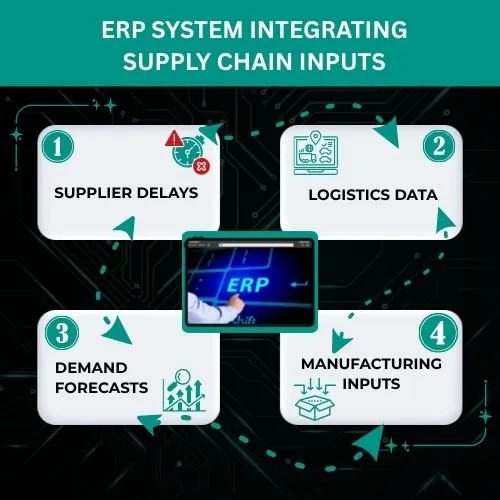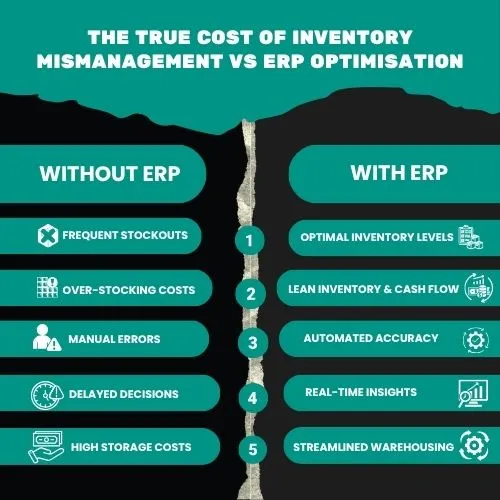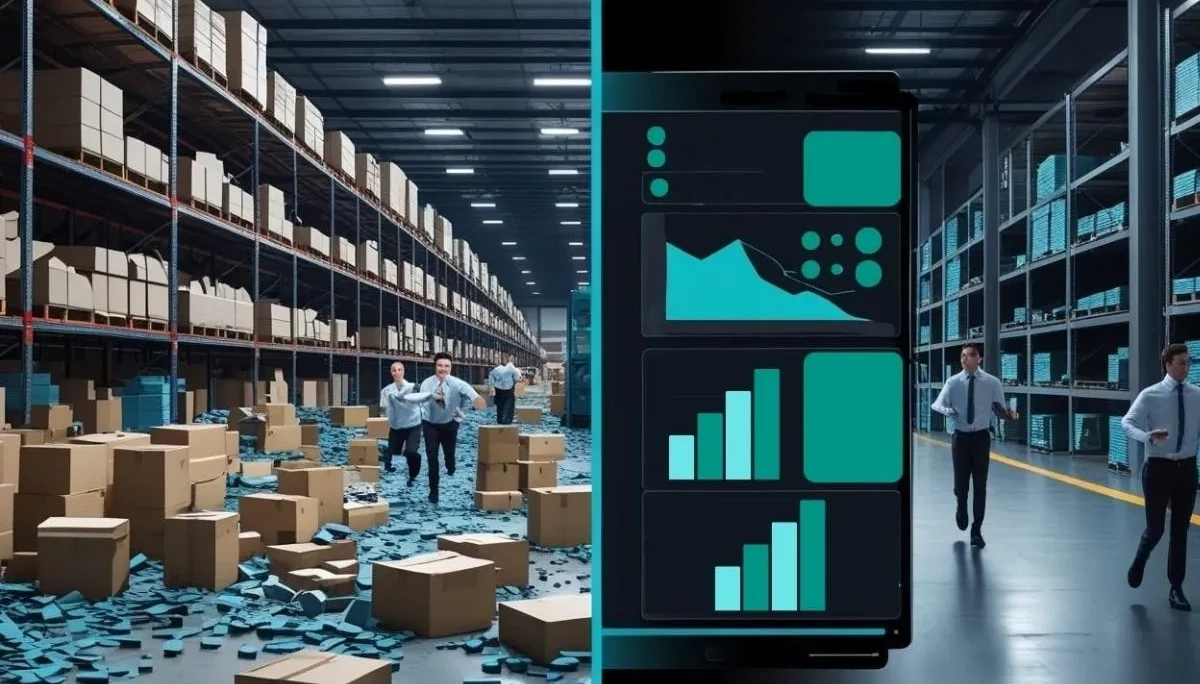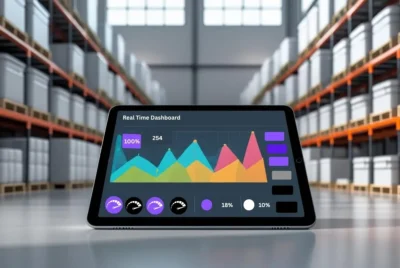Stockouts or overstocks—both are logistical nightmares for any company. Stockouts can bring operations to a halt, force costly contingency purchases, and prevent businesses from meeting customer demand. Conversely, overstocks can result in excessive holding costs, wasted storage space, and outdated inventory—all of which impact profitability.
Fortunately, ERP stock management solutions offer a powerful way to mitigate these issues. With features such as real-time tracking, automated procurement, and demand forecasting, ERP systems help businesses maintain optimal inventory levels, reduce waste, and respond swiftly to market demands.
The Impact of ERP on Inventory Management
ERP (Enterprise Resource Planning) inventory controls enable companies to manage stock in an optimised, intelligent manner. These systems offer integrated stock tracking software that can forecast, order, and monitor inventory efficiently. By streamlining the supply chain, ERP systems enhance inventory optimisation and ensure a consistent, uninterrupted supply flow.
Industry Insights:
- 57% of businesses believe that effective supply chain management gives them a competitive edge. (Source: LLCBuddy)
- Reducing supply chain costs from 9% to 4% can double a company’s profits. (Source: Zippa)
- 10% inventory cost savings can be achieved by addressing stockouts and overstocking issues. (Source: Zebra)
ERP isn’t just a stock solution—it’s a strategic advantage. Businesses using ERP can act quickly when opportunities arise, thanks to having the right stock at the right time.
Common Causes of Stockouts and Overstocks
Inventory mismanagement often results from:
- Supplier delays
- Logistics disruptions
- Inaccurate demand forecasting
- Manufacturing slowdowns
- Poor inventory records

ERP systems address all these pain points by integrating supplier data, aligning logistics, and enabling more accurate forecasting.
Real-Time Inventory Tracking
Thanks to centralised data management, ERP inventory controls offer real-time inventory visibility. These systems track inventory across warehouses, locations, and departments, offering a comprehensive overview.
With real-time data, businesses can answer vital questions instantly:
- How much stock is available?
- What’s in transit?
- What’s required for upcoming projects?
This visibility helps eliminate both overstocking and stockouts, and facilitates faster, more informed decision-making.
Barcode Scanning and Digital Recording
Most ERP systems now include integrated scanning capabilities—barcodes, lot numbers, and QR codes. These scanners ensure that each item is recorded accurately as it enters or leaves a facility.

Benefits include:
- Reliable stock tracking
- Faster reordering processes
- Easier management of returns or product recalls
These features are especially beneficial in high-volume industries such as e-commerce and retail, where inventory accuracy is mission-critical.
Automated Procurement, Receiving, and Shipping
ERP solutions streamline the entire inventory lifecycle:
- When stock reaches a minimum threshold, the system automatically triggers reordering
- Once received, goods are scanned and recorded
- During dispatch, items are tracked, and inventory levels are updated in real time
By automating procurement and logistics, ERP ensures a seamless inventory flow and reduces manual errors.
Accurate Demand Forecasting
With access to historical data and real-time stock levels, ERP systems enable precise demand forecasting. Instead of relying solely on reorder points, the system also analyses past trends, usage rates, and seasonal variations.
This helps businesses:
- Avoid unnecessary inventory buildup
- Prevent stock shortages
- Improve cash flow by maintaining leaner stock
Managing Multi-Warehouse and Multi-Location Inventory
Manual tracking across multiple sites is prone to errors and inefficiencies. ERP systems eliminate this challenge by offering a unified inventory view across all warehouses and locations.
Key advantages:
- Easier inventory balancing
- More accurate ordering
- Better utilisation of warehouse space
Advanced Analytics and Reporting
ERP systems provide more than just control—they offer strategic insights. With advanced analytics and custom reports, businesses can evaluate:
- Stock levels
- Product turnover rates
- Demand trends
- Profit margins
- Supply chain KPIs
These insights help managers refine their inventory strategies and support long-term growth.

Final Thoughts: Why ERP is Essential for Inventory Optimisation
ERP stock management solutions offer far more than inventory tracking. They help businesses:
- Avoid costly stockouts and overstocks
- Improve supplier coordination
- Forecast demand with greater accuracy
- Enhance decision-making through real-time data
- Streamline operations across locations
By investing in a modern ERP solution, businesses gain a vital competitive edge in today’s fast-paced market.




